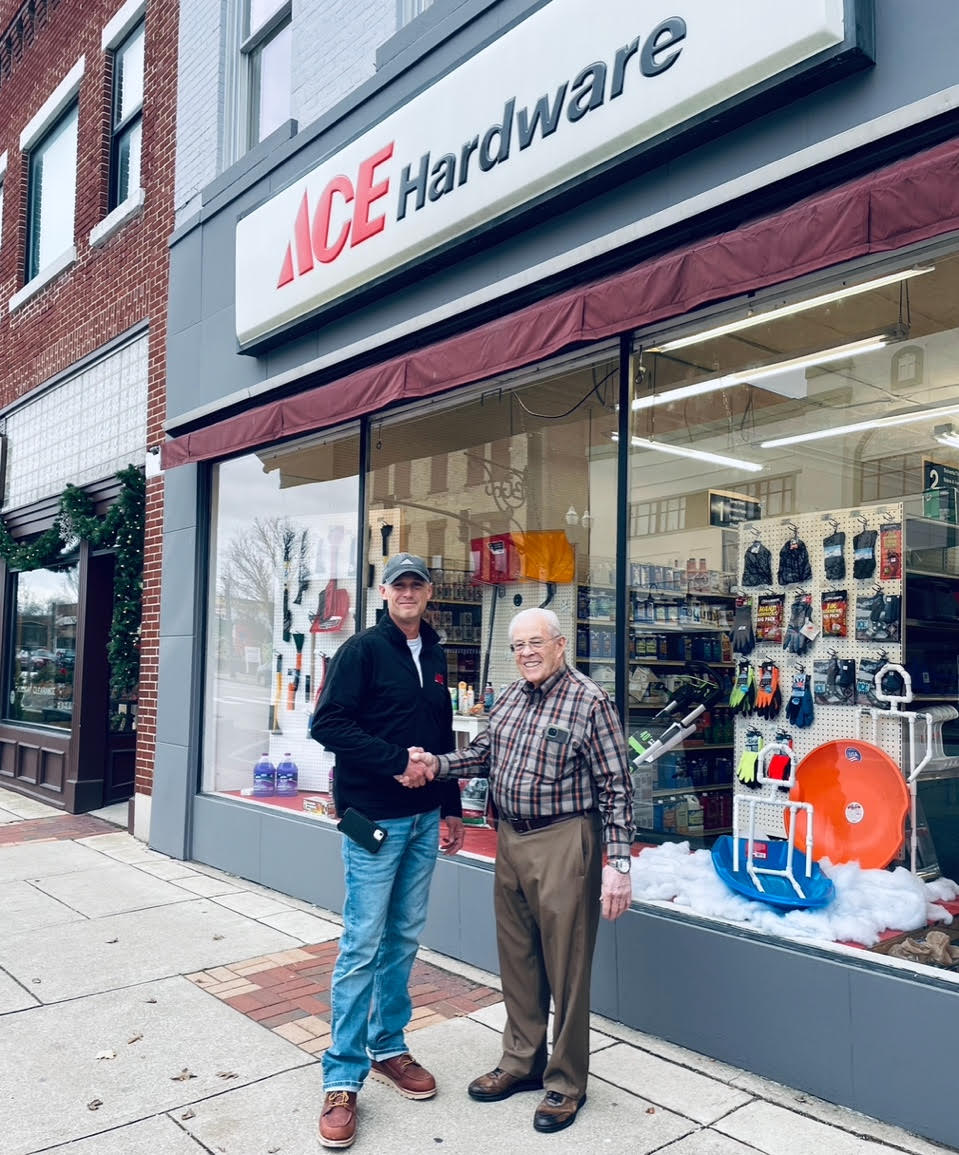When Dave Thompson purchased Main Street Ace Hardware from its former owner, Floyd Craft, he didn’t plan on making any changes to the Bowling Green, Ohio, store, which has been in its same location since 1987. But with every acquisition, change is inevitable, and for Thompson changes meant diving into building hardware and finding ways to educate his new employees on how to sell it and customers on why they should buy from him.
Thompson’s foray into building materials began at 18 years old when he started his own construction company straight out of high school.
“Initially, my goal was to become an architect,” Thompson says. “But after I graduated high school, I realized that field involved a lot of sitting and schooling. I loved the math and design aspect of architecture but I wasn’t good at sitting still, so I took a different avenue and became a contractor.”
Optimizing Builders Hardware
Follow these best practices to help sales grow in the quiet but powerful builders hardware category.
- KEEP THE AREA CLEAN
Keeping this category well organized is crucial. Not only does a messy department make customers reluctant to shop at your store, it can also be a physical danger. Be sure items are front facing and fully-stocked and keep small parts organized in a way that customers can easily find what they need. - COUNT YOUR ACCOUNTS
If your business offers sales accounts to contractors and maintenance professionals, do a semiannual review of those accounts to be sure your professional base is growing. Analyze the types of industries you serve and scout for new opportunities in and around your community. - HIGHLIGHT FINISHED PROJECTS
Builders hardware supports larger pieces, so many of your customers may be proud of a DIY project they’re just about to finish. Encourage their creativity! Ask them to send finished photos of their projects. With their permission, you can post those photos to your company’s social media accounts to inspire other shoppers.
As Thompson grew his construction business, he naturally got into real estate, going on to purchase multiple residential and commercial properties. It was through his involvement in commercial building ownership where he met Craft.
“Floyd was ready to sell, but his family didn’t want to take over the store from him,” Thompson says. “I purchased a building from him a few years ago and from that transaction, he recognized that he and I are very similar people and came to me with the proposal to buy his business.”
The deal was finalized in January 2023, with Thompson taking ownership of the store, and keeping all 11 of its employees, including longtime manager Carol Tolles.
One major change Thompson made when assuming the owner role was evolving his SKU selection to include additional building materials. The transition into building hardware and materials was prompted by a multitude of factors, from customers requests to having the prior knowledge to feel comfortable about breaking into this category. Thompson noticed a significant number of customers coming to the store for flooring, faucets and knobs and began restructuring his store based on his customer’s wants and needs.
5 Stats That Prove the Value of Employee Training
Lorman Education Services, a provider of online training and continuing education for professionals,
released “39 Statistics That Prove the Value of Employee Training,” which highlights why employees
left previous positions for new opportunities with better ones. Here are five takeaways from the report.
- 59% of employees claimed they had no workplace training and that most of their skills were self-taught.
- 74% of workers are willing to learn a new skill or re-train in order to remain employable.
- 76% of employees say a company would be more appealing if it offered additional skills training to its staff.
- 61% of adults in the U.S. seek career development opportunities when considering job opportunities.
- Retention rates rise 30-50% for companies with strong learning cultures.
Source: 39 Statistics That Prove the Value of Employee Training, Lorman Education Services
“We’ve moved to a point where we’re selling things I know how to install with my background in construction,” Thompson says. “We’ve been expanding our building hardware category from where it was under previous ownership and finding success there.”
With the change in product selection at his store, Thompson has been heavily involved with his employees, teaching them what they need to know about the new SKUs in their store, as he has a wealth of knowledge from his years as a contractor.
Having been in the business for over 28 years, Thompson understands that his employees won’t learn everything they need to know about the building materials category overnight. But, he’s dedicated to helping them grow and is focusing on the best ways to work with Tolles to educate employees.
Thompson says when he considers a new product, he’ll review with Tolles on how to install it and share anything else she may need to know when training their employees on it. When an owner or manager is thinking about bringing in a new product in the building hardware category, Thompson recommends
bringing in a few pieces at a time to give your employees time to spend with the new SKU.
“The biggest tip I’ve learned is understanding that everybody is different, and everybody has different levels of knowledge and desire,” Thompson says. “When we added building hardware, my team accepted it, even though it wasn’t an original part of the store they all were so knowledgeable about.”
Thompson has his employees utilize training offered through his co-op in addition to his in-store training.
Installation Initiative
Main Street Ace Hardware offers a variety of building hardware products and with all of them, Dave Thompson is able to offer installation in addition to the sale.
“If somebody wants to buy siding from us, they can purchase it from us directly and install it themselves, but we’ve started offering to install it for them for a fee,” Thompson says. “It’s a missed opportunity in many stores. I’ve been in small business all my life, and I know service is a huge deal. Offering installation has allowed us to be a full-service home center instead of being known for just selling nuts and bolts.”
“The biggest aspect of being successful in educating employees in the building hardware category, and any category, is having the desire to be knowledgeable,” Thompson says. “You have to have the desire to want to learn and finding motivated employees to train can be a tough situation, and that goes for both older and younger generations.”
Thompson says the transitioning of his store stems from his desire to serve a contractor, or extreme DIYer, instead of a retail customer. The employee education Thompson has implemented has been key to reaching and satisfying this new customer segment.
“A lot of big-box stores have high turnover rates, and not all of their employees have the specific knowledge on building hardware,” Thompson says. “It’s always an option to go to one of those stores, but what makes us different is the product knowledge. Our customers want to support local businesses, and I’ve brought in materials they use on the job site.”
 Hardware Retailing The Industry's Source for Insights and Information
Hardware Retailing The Industry's Source for Insights and Information






